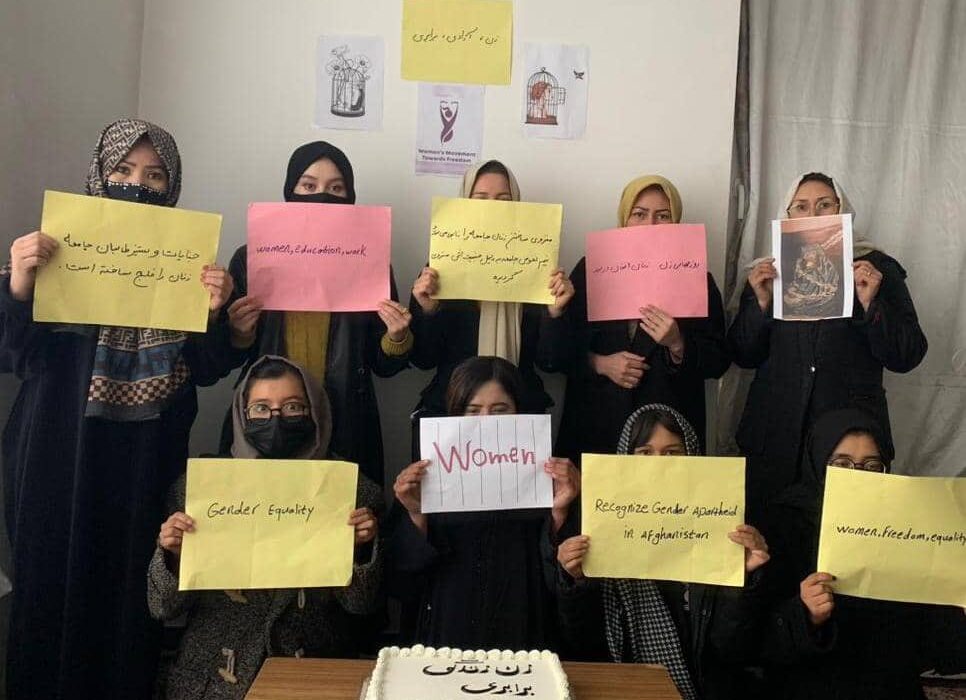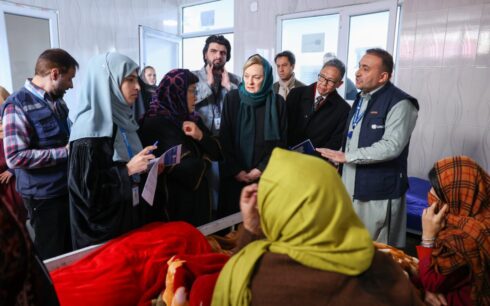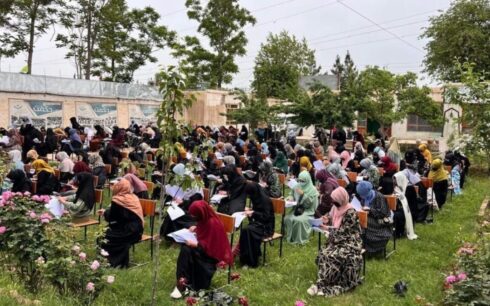Some residents of various provinces urged the international community to recognize “gender apartheid” in Afghanistan as a crime against humanity, arguing that it is essential for fulfilling women’s rights under Taliban rule.
Over the past nearly three years, the Taliban have stripped women and girls of basic rights, they said.
Women protesters, including those in exile, have highlighted the ongoing restrictions that mute the voices of women and girls who demand recognition of what they describe as “gender discrimination.”
“If gender apartheid is not recognized in Afghanistan, women may face even more oppression and torture, especially our female activists who advocate for rights, justice, and freedom,” said Karima Azam, a civil activist. “They are oppressed and imprisoned. I urge all women to join the campaign against gender apartheid.”
During the Taliban’s rule, many women and girls have faced severe restrictions in employment, education, and basic rights. “For the third year in a row, women in Afghanistan have been denied their basic rights. I hope that by next year, women will gain access to their fundamental rights and return to universities, schools, and work to achieve what they deserve,” said Parisa, a resident of Badghis.
In Dortmund, Germany, some protesting women have held sit-ins aimed at drawing international attention to gender apartheid. They also urged the international community to refrain from engaging with the Taliban, who have deprived women of political, social, and human rights.
“Gender apartheid in Afghanistan should be recognized by international organizations and countries defending freedom and human rights, as a crime against humanity,” said Tamana Zarayab Pariani, a member of the protesting group. “We demand the unconditional release of political prisoners, including women protesters, political and civil activists.”
According to a UN report, the Taliban issued over 50 decrees and guidelines that prohibit women and girls from continuing their education, working, traveling without a male guardian, and visiting parks.





